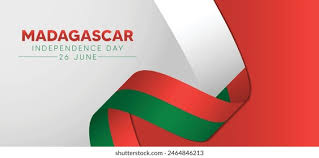Introduction
Madagascar, the fourth largest island in the world, is renowned for its unmatched biodiversity and unique wildlife. As a nation that diverged from the African continent approximately 160 million years ago, Madagascar’s isolated evolution has created a hotbed of unique flora and fauna not found anywhere else on Earth. Recent global events highlight the island’s cultural richness and ecological significance, marking it an essential area of interest for conservationists, travelers, and scholars alike.
Unique Biodiversity
Home to over 25% of the world’s species of lemurs, Madagascar is often referred to as the “eighth continent” due to its incredibly diverse ecosystems. The island boasts more than 14,000 plant species, with around 80% endemic to the region. It possesses unique habitats ranging from rainforests to deserts, allowing for a wide variety of wildlife. However, the rich biodiversity is currently under threat due to deforestation, climate change, and illegal wildlife trade.
Recent Developments
In 2023, Madagascar has taken significant strides in protecting its natural heritage. The government, along with international organizations, has ramped up conservation efforts, including the establishment of new protected areas and reforestation projects aimed at combating the impacts of climate change. Additionally, the nation is leveraging eco-tourism to generate revenue while promoting environmental awareness. Notably, the United Nations has recognized Madagascar as a biodiversity hotspot, encouraging more global attention and support for conservation measures.
Culture and Economy
Beyond its wildlife, Madagascar is rich in cultural diversity, home to 18 different ethnic groups, each with unique traditions, languages, and artistry. The capital, Antananarivo, is a vibrant city that showcases the island’s diverse history through its architecture and markets. Economically, Madagascar relies heavily on agriculture, with vanilla, coffee, and cloves being key exports. Unfortunately, political instability has often hindered developmental projects, underscoring the need for sustainable economic policies that prioritize both people and nature.
Conclusion
Madagascar stands as a beacon of biodiversity and cultural richness. As the world continues to confront the challenges of climate change and habitat loss, the importance of Madagascar cannot be overstated. Its unique ecosystems and vibrant cultures offer invaluable insights into environmental sustainability and resilience. Looking ahead, it is crucial for local and international communities to collaborate in preserving this irreplaceable treasure, ensuring that future generations can marvel at the wonders of Madagascar.
